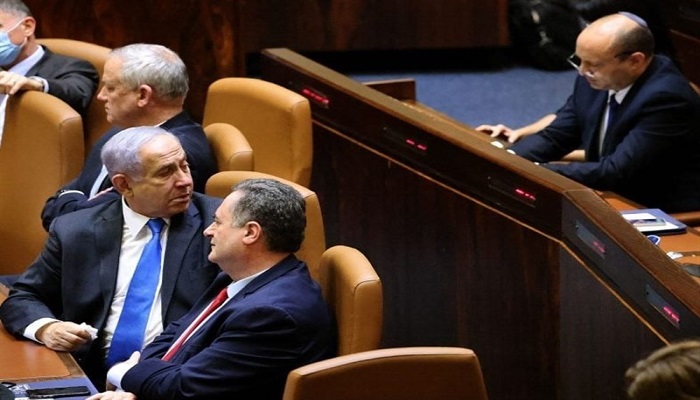PNN – A new poll by the Ma’ariv newspaper indicates a dire situation for Benjamin Netanyahu, the Likud party, and the faction that currently holds power in the occupied territories.
According to the report of Pakistan News Network, a recent poll published by the Ma’ariv newspaper and conducted by the Lazar Research Institute on May 28-29, 2025, shows significant developments in the Israeli political scene. The survey, conducted with a representative sample of 500 Zionist adults and with a margin of error of ±4.4 percent, examined the status of political parties, the distribution of seats in the Knesset in the event of early elections, as well as public views on the appointment of David Zini as head of the Shin Bet. The results of this poll indicate dynamic changes in public opinion and the weakening of the position of the Likud party led by Benjamin Netanyahu.
Analysis of poll results: seat distribution
The poll examined two main scenarios: one with former Prime Minister Naftali Bennett as the leader of a new political party and one without him. The results are as follows.
Read more:
Olmert: Gaza is Palestinian land and the Israeli army must withdraw from it
Scenario One: Naftali Bennett’s Participation in the Political Race
In this scenario, the new party led by Naftali Bennett leads the race with 28 seats, maintaining its position as the strongest party. In contrast, the Likud party falls significantly to 19 seats. Other parties also gain seats in this way.
– Yesh Atid and Yisrael Beitenu: 10 seats each
– Jewish Power and United Torah Judaism: 8 seats each
– Yair Golan’s Democratic Party: 9 seats
In this combination, the Netanyahu-led coalition would win only 44 seats, while the opposition (including Bennett) would win 66 seats. The Arab parties (Rem and God-Glory) would have a total of 10 seats. These results indicate that Netanyahu’s coalition would fail to win a parliamentary majority (61 seats).
Scenario Two: Naftali Bennett’s Absence
If Bennett does not return to politics, Likud will increase slightly to 23 seats, but will still be behind its previous position. The distribution of seats in this scenario is as follows:
– National Unity: 16 seats
– Yesh Atid: 14 seats
– Democrats: 13 seats
– Shas and Jewish Power: 9 seats each
– United Torah Judaism: 8 seats
In this case, Netanyahu’s coalition would win 49 seats and the opposition (excluding Arab parties) would win 61 seats. Although Netanyahu’s coalition would be better off in this scenario, it would still fall short of a majority, and the current opposition could form a majority coalition without the need for Arab parties.
Relative growth of the left wing
Yair Golan’s Democratic Party is showing signs of recovery after a slight decline last week. It would gain 9 seats in the Bennett scenario and 13 seats in the no-Bennet scenario (up from 12 seats in the previous poll). This growth indicates acceleration in public support for the party, which could play a key role in the political equation in the future.
Legal dispute over appointment of Shin Bet chief
Another part of the poll addressed the appointment of Major General David Zini as head of the Shin Bet. Attorney General Gali Baharav-Meara believes that Netanyahu is barred from senior appointments in law enforcement agencies due to conflicts of interest. The poll results show:
– 42 percent of respondents support the Attorney General’s position.
– 40 percent support Netanyahu.
– 18% have no clear opinion.
The breakdown of public opinion based on political affiliation is also notable.
– 86 percent of Netanyahu’s coalition supporters support him.
– 72 percent of opposition supporters support the Attorney General’s position.
– Among Arab party voters, 66% support the attorney general, 8% support Netanyahu, and 26% are undecided.
These results highlight the deep political divide in Israeli society, where views on legal and political issues are strongly influenced by party affiliation.
The Ma’ariv poll suggests a relatively stable situation against the Likud party and the coalition in power. The Likud party and Netanyahu’s coalition face serious challenges in maintaining their voter base, especially if Naftali Bennett returns as a strong contender. The growth of Yair Golan’s Democratic Party also indicates the potential for new forces to emerge among the opposition. At the same time, the legal dispute over the appointment of the Shin Bet chief is highlighting the divisions within society as a sign of deeper tensions between political and judicial institutions. These developments could have important implications for upcoming elections and the composition of the next Israeli government.

